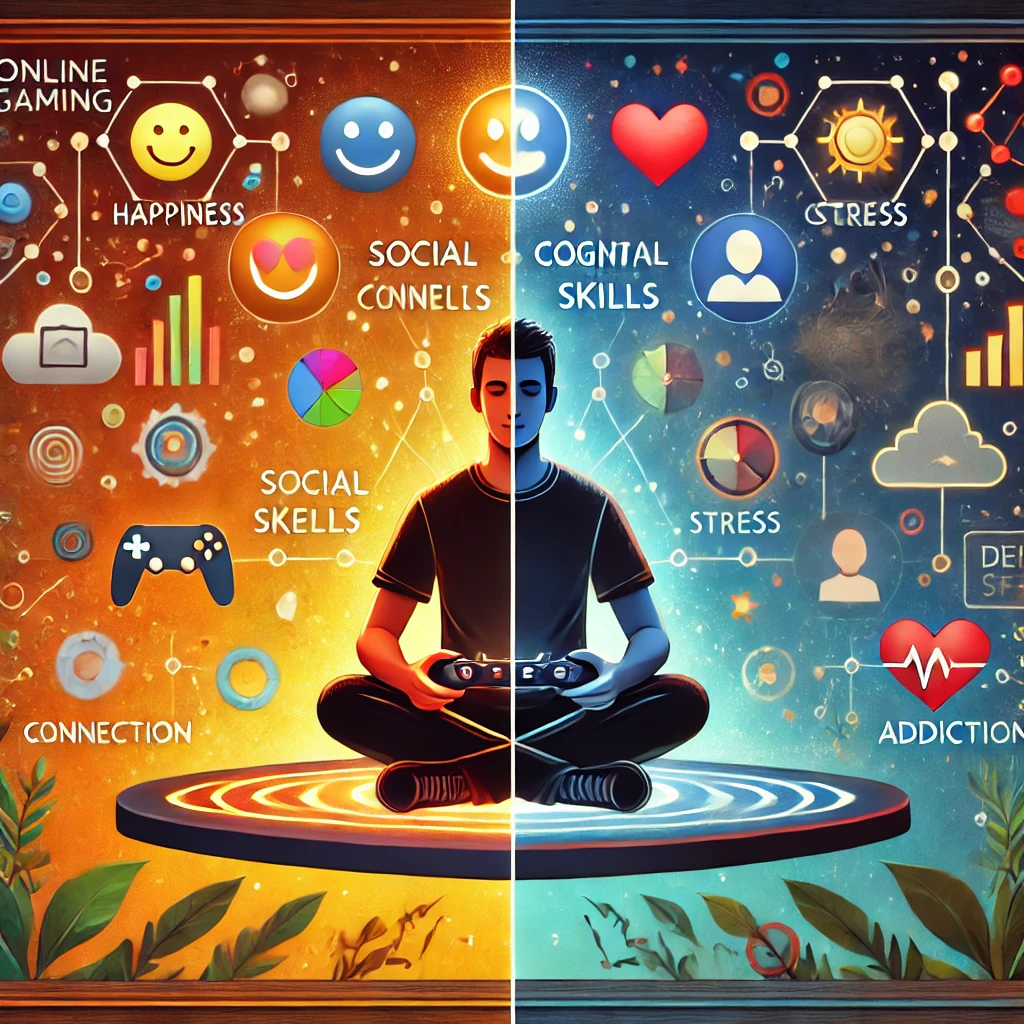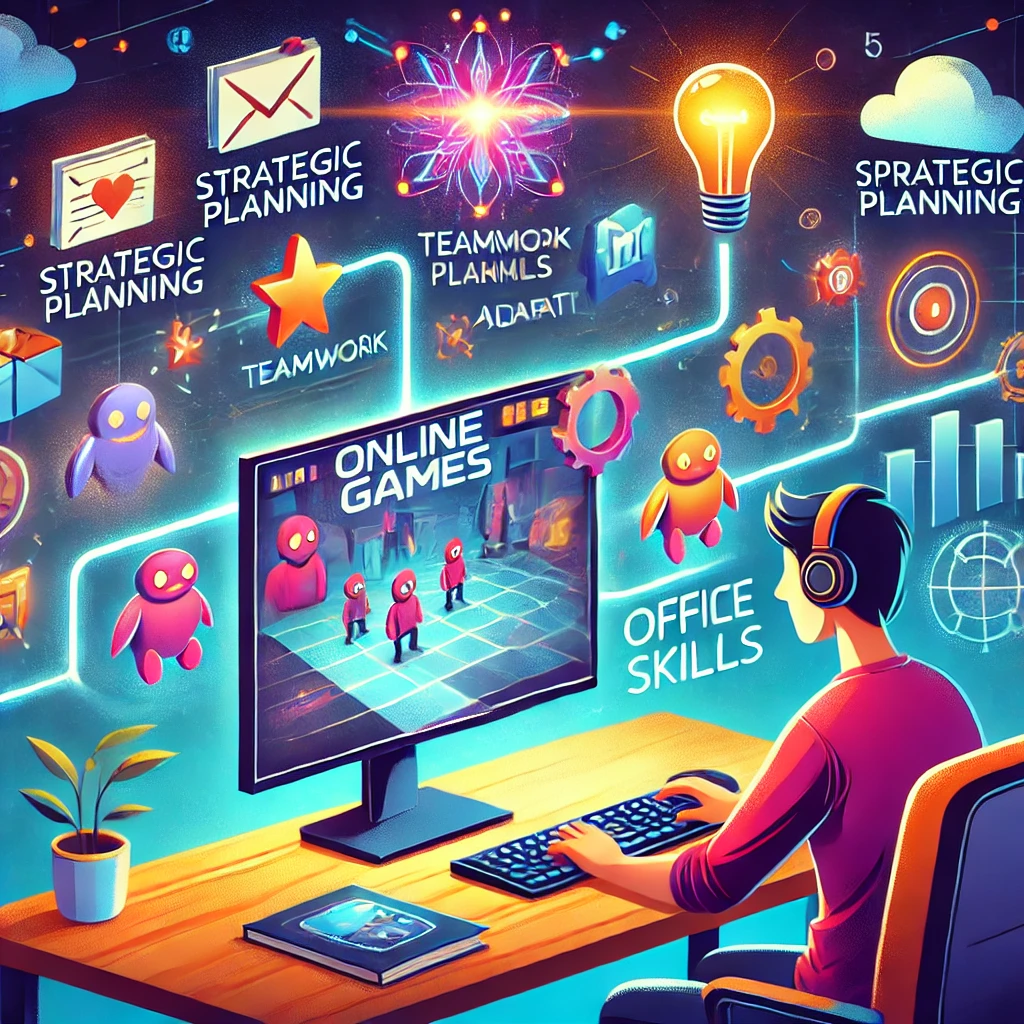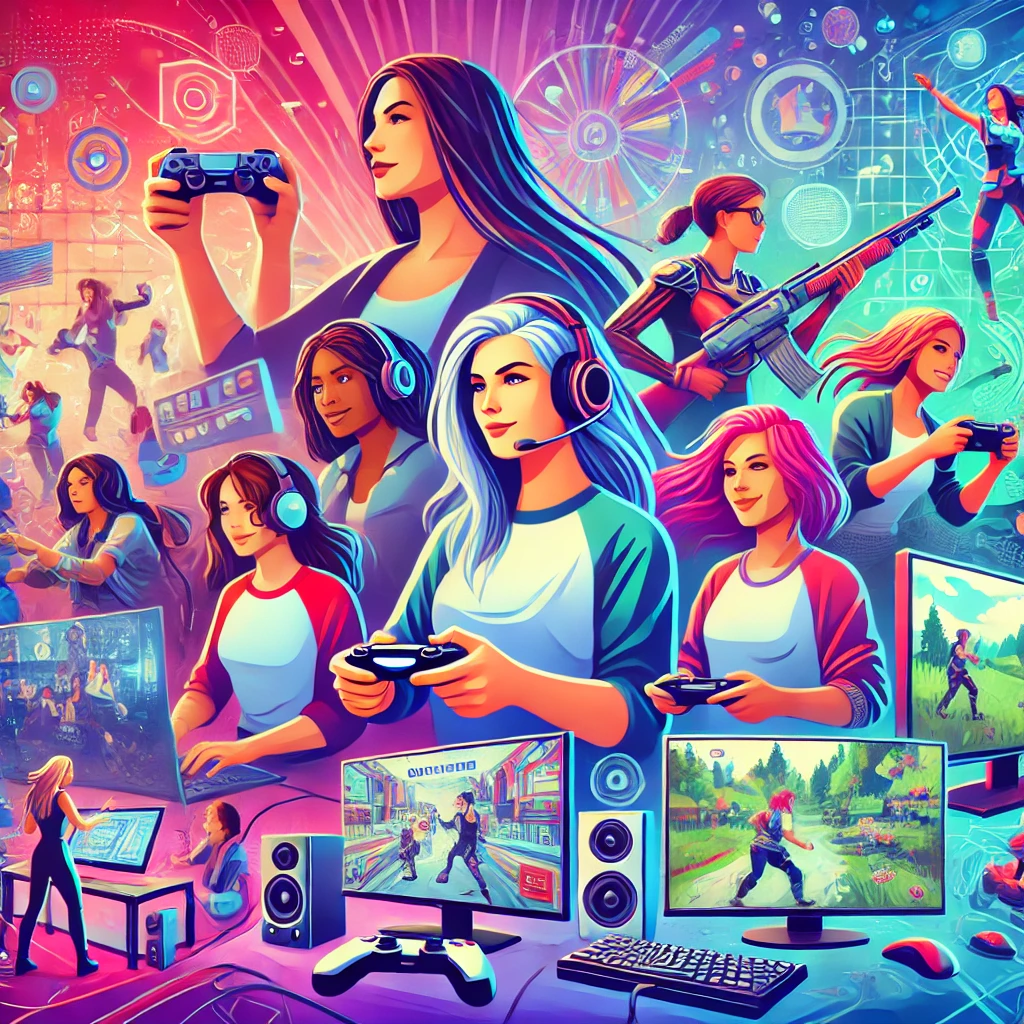The Impact of Online Gaming on Mental Health: Positive and Negative Effects
The growth of online gaming has changed how people interact with technology, find entertainment, and connect with each other. With millions of players logging in daily around the world, online gaming is more than just a leisure activity—it’s become part of our culture. However, its influence on mental health is widely debated due to its potential benefits and risks. This article dives into the positive and negative effects of online gaming on mental health to understand its impact better.
Positive Effects of Online Gaming on Mental Health
- Enhanced Cognitive Skills Online gaming often requires players to think on their feet, plan, and solve problems quickly. Games like puzzles, simulations, and strategy games can boost mental abilities such as memory, spatial awareness, and decision-making.Example: Real-time strategy games like StarCraft enhance multitasking and quick decision-making skills.
- Stress Relief and Relaxation For many, gaming is a way to escape the pressures of daily life. Entering a virtual world can offer temporary relief from anxiety and help players emotionally recharge.Example: Casual games like Animal Crossing or Stardew Valley provide a calming experience with their low-stress gameplay and soothing visuals.
- Social Connection Multiplayer games enable players to interact socially, helping them form bonds with others who share similar interests. This is particularly helpful for those who feel isolated offline.Example: Games like World of Warcraft and Fortnite promote teamwork and communication, leading to friendships.
- Boosted Self-Esteem and Confidence Accomplishing goals, overcoming challenges, or leading a team in online games can improve self-esteem and create a sense of achievement. This can lead to greater confidence in real-life situations.Example: Competitive games like League of Legends and Overwatch offer platforms for skill development and recognition.
- Improved Emotional Resilience Experiencing failure in a game and trying again can teach players resilience and the value of persistence. These lessons can help them manage frustration and adapt to setbacks in their daily lives.Example: Rogue-like games such as Hades or Dark Souls challenge players to overcome repeated failures, encouraging persistence.
Negative Effects of Online Gaming on Mental Health
- Addiction and Dependency A major concern is gaming addiction, where excessive gaming disrupts daily life, work, and relationships. The compulsive urge to play can lead to a loss of control and neglect of real-world duties.Example: Games with endless progression systems, like Genshin Impact or World of Warcraft, can encourage addictive behaviors.
- Increased Anxiety and Stress While gaming can reduce stress for some, it may increase anxiety for others. High-stakes competitive games or toxic environments can create undue pressure and mental strain.Example: Ranked modes in games like Valorant or Dota 2 can elevate stress levels due to their competitive nature.
- Sleep Disturbances Long gaming sessions, especially late at night, can disrupt sleep patterns. Poor sleep quality is associated with higher risks of depression and anxiety.Example: Players of games with global time zones, like Final Fantasy XIV, often sacrifice sleep to play with friends.
- Cyberbullying and Toxicity Online platforms can sometimes foster toxic environments where harassment and negative comments are common. This can harm players’ self-esteem and mental health.Example: Games with open chat systems, such as Call of Duty or Apex Legends, are frequently criticized for toxic player behavior.
Understanding both the positive and negative effects of online gaming is crucial for players and their loved ones. You will find good games on this site https://1winua.com.ua/. By recognizing these impacts, individuals can make informed choices about their gaming habits and ensure a healthier balance in their lives.
Isolation and Social Withdrawal
Though gaming connects people online, ironically, it can lead to social withdrawal in the real world. Excessive gaming can reduce face-to-face interactions and increase feelings of loneliness.
Example: Single-player games with immersive worlds, like The Elder Scrolls V: Skyrim, can encourage prolonged isolation if played too much.
Balancing the Effects: Strategies for Healthy Gaming
- Set Time Limits: Use tools to track gaming time and ensure it doesn’t interfere with daily tasks.
- Take Breaks: Regular breaks during gaming sessions help reduce eye strain and prevent over-immersion.
- Choose Games Wisely: Select games that match your goals, whether for relaxation, socializing, or learning new skills.
- Promote Positive Interaction: Join supportive gaming communities and stay away from toxic environments.
- Seek Help if Needed: If gaming negatively affects your mental health, consider talking to a professional or joining support groups.
Conclusion
Online gaming can both benefit and harm mental health. It offers stress relief, social connections, and cognitive benefits but also poses risks like addiction, anxiety, and social isolation. The key to positive gaming lies in mindful habits and maintaining balance. When done responsibly, online gaming can enrich life and enhance mental health.



Post Comment